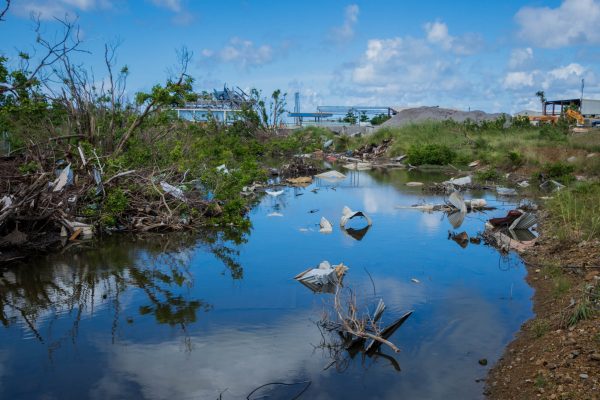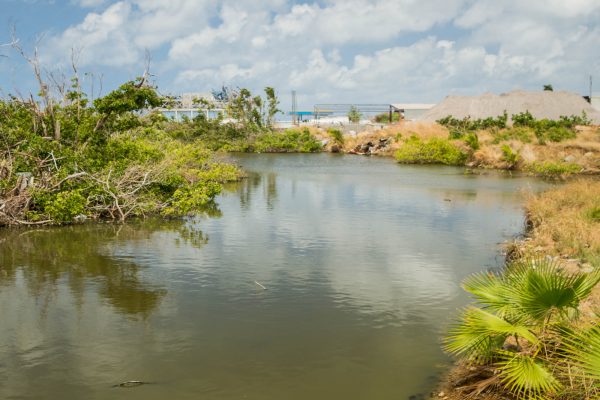Pont de Durat is an 18th century bridge in Marigot. It is a historical landmark that is not particularly famous, but you’ve surely crossed it. It is the bridge between Super U and the roundabout in Agrément.
Beneath the bridge, a concrete drainage channel running down from Concordia turns into a broader channel of water with some mangroves along the bank. At some point it was a pond, filled in bit by bit from every side. Now it runs in a lazy curve down to Galisbay.

Before Irma, it was one of the island’s least scenic wetlands. Shopping carts and mattresses decayed down to the metal springs stuck up out of the shallow water. After Irma, it was much worse, littered with twisted sheets of zinc.
Given the ongoing neglect of this area, it was a surprise to notice earlier this year that it had been cleaned up. The mangroves are recovering. The surface of the water is broken only by a couple dead branches, instead of countless pieces of manmade debris.

It is a joyful transformation and an entirely positive development. But it also brings to mind questions about how clean-up and recovery efforts are prioritized. Many other ponds are still sprinkled with debris. On the other side of this very bridge, garbage traveling down the drainage ditch is collecting.
On social media, around dinner tables and over happy hour drinks St. Martin residents discuss the relative merits of different relief efforts. It is not simply a question of which natural spaces to clean and restore first. There are countless tasks remaining.
There are also countless questions: Should money be spent on Carnival when many are still roofless? What critical work on utilities needs to be done before the coming hurricane season? Why does progress at the airport seem so slow? When will schools be restored? Should tourism infrastructure be prioritized to generate economic activity or should we focus on the needs of residents?
I don’t envy the politicians and public servants trying to make these decisions. So many things are left to do, and even successes can be criticized as misplaced priorities. Are projects inefficient? Do they rely to much on foreign companies? I certainly don’t have the answers. Clearly we should do as much as possible as soon as possible while providing as much local employment as possible. Figuring out exactly how to do that is a big challenge. In the meantime, we can celebrate successes wherever they happen.

